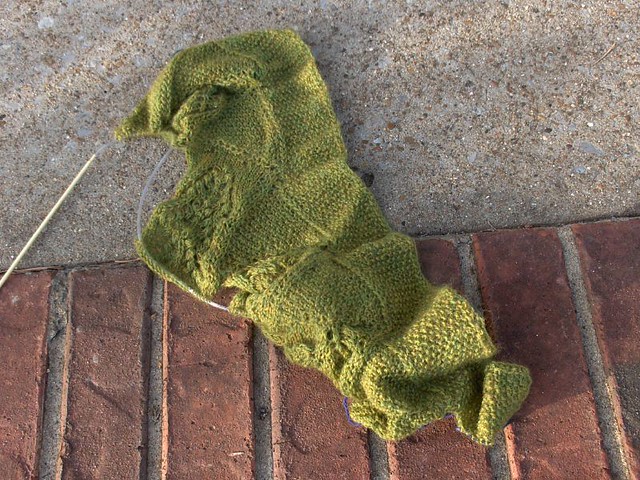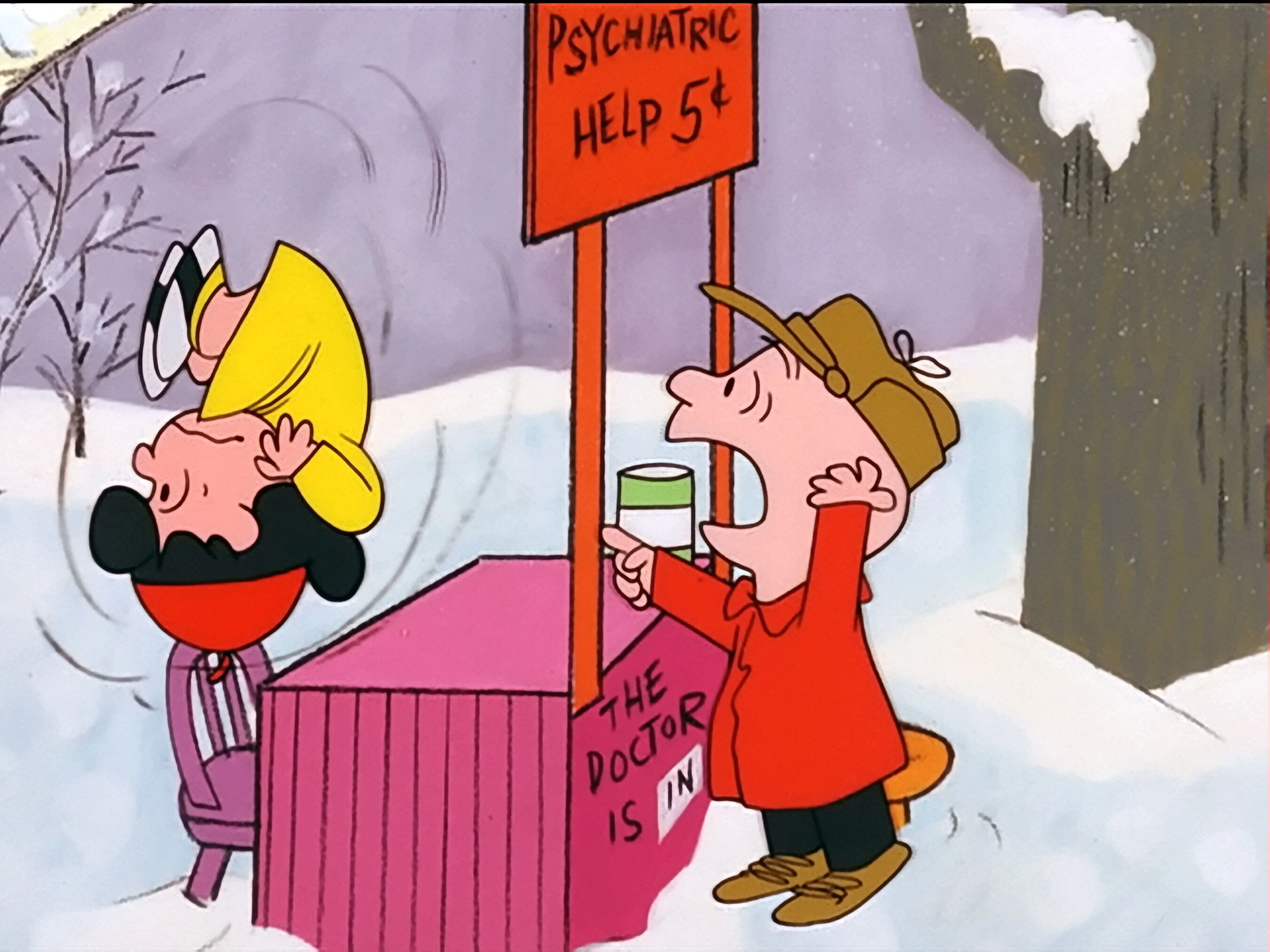1x01: Pilot
I've probably watched this episode more than any other single episode of any other television show. That said, I was surprised at how much more I've managed to notice and tease out of it this time around, partly because I was actively paying attention to it, and partly because 22 years later I'm looking at it from a different perspective.
We establish early on that Scully isn't just "good" - she's exceptional. I don't know what the official stats are, but I can't imagine that it's a common occurrence for someone to go from college to medical school to the FBI academy, to then be hired to teach at the FBI academy almost immediately upon graduating, but we know from her first conversation with the director et al that she's been with the Bureau just over two years and has, in fact been an instructor at Quantico during that time.
(I'll also note here that it seems like Scully might have a little bit of a fangirl crush on the Mulder of Academy legend and it's kind of adorable. But more importantly, I think establishing that she goes into this with a high opinion of him (and possibly a professional fascination with him and his early work) helps to build on the relationship they develop over the course of season one, which looking back through the original material after years of mostly fanon and headcanon is beautiful and fascinating, and not what I was expecting it to be.)
A note about Mulder, which will probably be reiterated a few times here - he accepts the fantastic as an equally valid possibility. This is NOT the same thing as him automatically, completely believing that the fantastic has to be the right answer, and there is a level of reserve that he holds in the earlier episodes particularly, when he suggests those ideas to Scully. I get the feeling that he's as much testing her reactions as he is expressing genuine belief during this first case. Which is not to say that he doesn't often believe the fantastic is the right answer. He definitely believes in the possibility of (even actual existence of) extraterrestrials and other paranormal phenomena. He certainly knows there is some kind of conspiracy going on in the government. However, you can see where up to this point he's been walking the tightrope between belief and healthy investigative skepticism by himself, and that he also understands the political intricacies involved in his job and his passions, he just doesn't like to play by them.
One thing that develops very quickly through the first season, even this first arc of episodes, is the two of them establishing a pattern of taking opposing sides. Not because either of them have hard-set absolute beliefs, but because it allows them to fully explore the possibilities without falling over the edge of the abyss. Even in moments where Scully does agree that something is going on, even when she is facing what is plausible evidence to her scientific mind of the possibility of aliens and phenomena, she counters Mulder's arguments with "okay, but what if it's not? What are the other options here?" - Mulder in contrast, looks at situations where there's strong evidence for a "normal" solution and says "but what if it is? Are we ruling out another avenue just because it's not standard thinking?" And this is why they work. This is why they're so damn good at what they do - and the more they do it, the more they grow to trust one another in this regard, the further into those two polar opposites they can, and almost have to sit. But I think that it's too simplistic and unfair to the complexity of the characters to say or assume that he always absolutely believes and that she always absolutely does not.
In their opening scene together, there's a palpable sense of enjoyment in both of them with the exchange. There's an obvious meeting of the minds, of shared and equal intelligence, of realizing that you're talking to someone who either does or could respect you and your accomplishments and keep up with you and your thinking (and one thing season one is going to emphasize again and again and AGAIN is how very accomplished these two people are).
Starting with an out-of-town case in a rural, tight-knit community draws clear lines of "us vs. them" for Mulder and Scully to work within, which in turn establishes an internal "We're in this together / we're better acquainted and connected than we might otherwise feel" sense between the two of them.
In re: Scully's "I've never had the pleasure" line regarding the bodies in the graveyard - this can't be referring to an autopsy. She's been teaching at Quantico, and really the only field she's qualified to teach at that point would be forensic pathology - she's done autopsies. It's much more likely she's referring to it being her first exhumation.
And finally, a random thing that I wonder: what does Scully do that first night before they leave for Oregon? Pack? Does she even have things for a trip, or does she have to run to the store for provisions or tiny bottles of shampoo? How much travelling has she done for work so far? How does that contrast to Scully three years from now - who likely has not one but several "go-bags" packed and stowed in her house, her car, her office, because really, how often will they just up and leave on a dime? (Answer: ALL THE DAMN TIME.)
1x02: Deep Throat
I love Mulder's little "swoop" in on Scully at the bar when he first arrives. Their sometimes quite physical playfulness with one another is one of my constant joys with these characters.
This is where we get our first look at Deep Throat, and the question to ask is, does he warn Mulder off because he legitimately doesn't want Mulder investigating and thinks it's too dangerous? Does he warn him off, still legitimately, but because he doesn't want to risk this particular project getting revealed? Or does he warn him because he realizes that will make Mulder want to to investigate THAT MUCH MORE by being told he shouldn't?
The answer to that question is always going to be subjective. It hinges on what Deep Throat's overall goal in his interactions with Mulder are over the entire course of their relationship. I'm going to come back to this frequently, so let's outline the possibilities.
One, there's the possibility that he is, in fact (as he will explain in E.B.E.) sick of the shadow conspiracy and the lies and what's being done to people. In which case he's either hoping that Mulder will help reveal the truth - OR - he doesn't want the public to know the truth, but he's using Mulder as a knight on his chessboard against the other side of the Consortium, to poke at them or distract them, or damage their goals in some way or another.
Two, he could loyal to the shadow conspiracy, and be using Mulder and the trust Mulder places in him to help disseminate false information. Yes, there is a conspiracy, but it's not what you think, and while Mulder is chasing down Explanation A (and therefore giving it time, attention, and weight) - the answer is actually Explanation B, which stays hidden.
"Aren't you even curious?" Mulder asks Scully. I think here she is, but she says no, because the only thing she can think is what is he's right about any part of it? What if they really can break minds, somehow, someway? His mind is too beautiful to be broken, she can't stand the thought of Mulder ending up like the pilots they've seen there. (Yes, my M/S shippiness is showing a bit here, but it plays well against the mild fangirling Scully does in episode one.)
How often does Mulder outright and blatantly ditch her like that? Not so much going off to investigate something without telling her first, but ditches her mid-case? It's one of those points of characterization that gets played up a lot in fic, but I'll be interested to see how often it actually plays out in canon.
Scully gets really, really rattled and offended by the government fucking with them, and what was done to Mulder. She puts her foot down hard about leaving and dropping the case at the end. Until now, whatever government interference they've faced has been passive - "oh, hey, did you hear? The evidence disappeared" It hasn't been men with guns in cars stomping all over their rights without what she perceives as cause. It certainly hasn't been the government taking her partner and mucking around with his brain leaving him disoriented and confused. Even the events in episode one, like the fire and the body tampering could be explained as the local parents trying to cover for their children. That's a different thing. That's not government sanctioned miscarriage of procedure and justice. Her reactions here are our first glimpse of the righteous anger that will carry her through the show.
1x03: Squeeze
Mulder being vaguely possessive of Scully. I love this. I love this in unreasonable ways.
We get to see, now that we've seen two cases where they were looked at as a unit, by outsiders, what the reactions that their peers have to their work. More importantly, we get to see how this change in career path is affecting Scully's life externally, instead of the internal view we've had so far.
TOOMS IS CREEPY
Scully points out the possessiveness and Mulder acknowledges it - acknowledges that she's important and the respect she has for him is important. It's a weirdly platonic sort of possessiveness, it's about partnership rather than relationship - and that's a striking parallel. It's also part of what makes their relationship so compelling - we're given the same beats we'd get if they were a couple (or leaning that way), but in contexts that are very definitely non-sexual. You can still read the sexual connotations and tension under the surface, there's certainly an attraction there, but it's almost incidental to their attraction to one another's intellect, their character, and their skills.
Is that why they captured the imagination of so many fans and writers so completely? That their relationship is predicated on so much deeper a reading of one another than just physical attractiveness? None of which is to say physical attraction doesn't or shouldn't play a part, or that acknowledging two characters being attracted to one another is a bad thing, but it is seen much less in modern media between male/female couples. More often, the easy-out of falling back on a trope-ish situation to garner fan attention wins out. The things that the British TV show "The Avengers" did between Steed and Peel that innovated writing a male/female pair and created the situations we now use so often as tropes to move relationships along have become so commonplace that the other side of that coin, building a thorough, well-rounded and completely human, multi-faceted relationship between the two gets short shrift.
She may differ on the details, but she believes that Mulder is right about the connections between the cases. Again, this isn't the dynamic they tend to get reduced to: "Mulder believes, Scully rolls her eyes, gets him out of trouble, and blindly ignores all evidence put in front of her".
This is all about what path does Scully want to take, what side does she want to be on? And the subtle undercurrent is as much "the victim's side" vs. "the bureaucracy's side" as it is "Mulder's side" vs. "rationality/normal". (I still say there's a fantastic paper to be written comparing and contrasting the X-Files and Fringe in terms of the agents of fear and distrust in our society.)



















